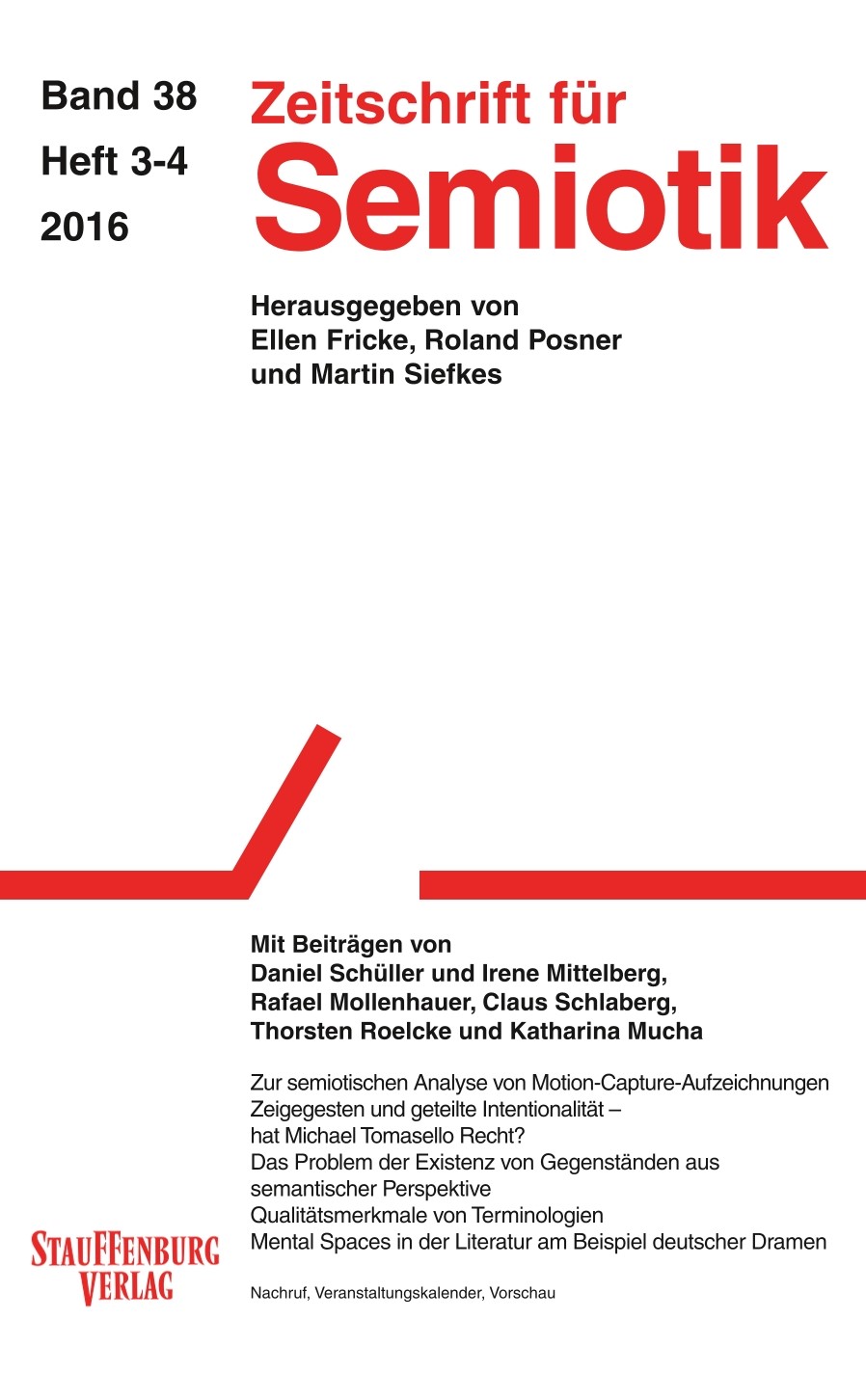Binäre Diskurskonstruktionen als mentale Realitäts- und Möglichkeitskonstruktionen. Exemplifiziert am ‚Dramatischen Dialog‘ des 16. bis 18. Jh.*
DOI:
https://doi.org/10.14464/zsem.v38i3-4.639Keywords:
18th century drama, dramatic dialogue, discourse construction, discourse linguistics, conditional sentence, Mental Space Theory, Conceptual Blending Theory, cognitive linguistics, Construction GrammarAbstract
Summary. This contribution explains the notion of discourse constructions, and presents aspects of the analysis of two binary discourse constructions, wer p, (der) q and wenn p, (dann/so) q. These binary constructions serve to define relations between elements on the basis of the conditional schema but in different ways, namely as an objective reality or as a possibility that needs to be evaluated, respectively. The conception of discourse constructions is related to Mental Space Theory, which considers knowledge structures as representations that are being integrated, selected, composed, and elaborated within mental spaces during interactions. Depending on the space builder, different inferences are drawn that point to social practices either as quasi objective or as negotiable. The cognitive approach of constructional grammar is combined with the philosophical question of how the self and its realities become visible through social interaction. Evidence from a corpus of 16th to 18th century drama is presented that supports the theoretical assumptions.
Downloads
Published
Issue
Section
License
Copyright (c) 2023 Katharina Mucha

This work is licensed under a Creative Commons Attribution 4.0 International License.
Copyright for articles published in this journal is retained by the authors. The content is published under a Creative Commons Licence Attribution 4.0 International (CC BY 4.0). This permits use, distribution, and reproduction in any medium, provided the original work is properly cited, and is otherwise in compliance with the licence.


